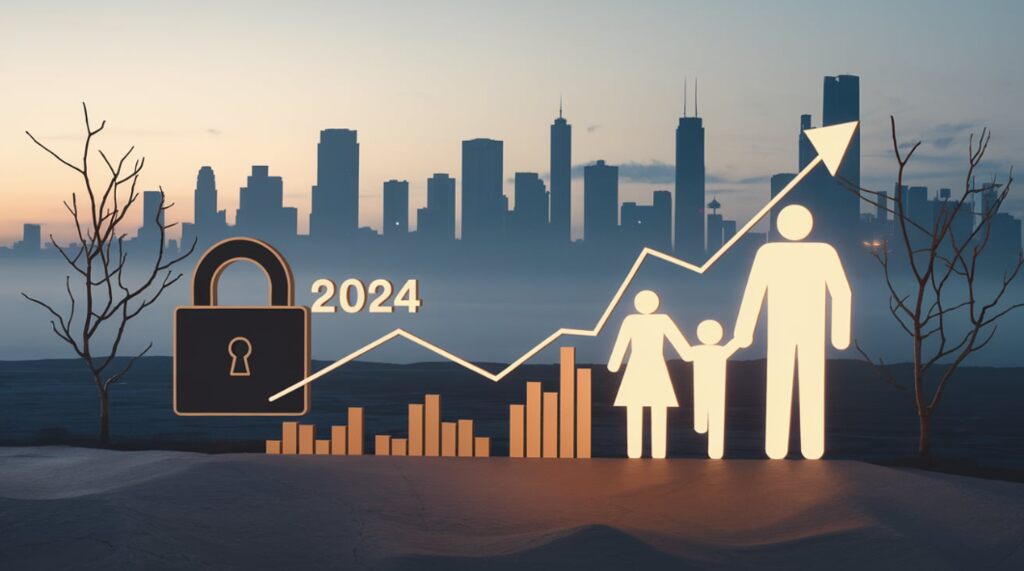Table of Contents
ToggleUnderstanding the Interlink Between Homelessness and Credit Scores
When any of us think about financial health, credit scores really take center stage. A good credit score can open up doors to rent an apartment, secure a job, or even get loans at affordable rates. For those without stable housing, though, the journey to maintaining or building a credit score can feel impossible.
Homelessness puts people in a vicious cycle of poverty; without a home, access to basic needs such as opening a bank account, credit cards, and finding jobs becomes difficult. All these challenges substantially inhibit the ability to create or improve a credit score, adding to the already complex struggle in moving toward stabilization. This blog explores the unique challenges and insights of the homeless Credit Score issue as it seeks to shed light on this somewhat ignored financial problem and gives ideas about change.
Why Credit Scores Matter to the Homeless
It follows that credit today is much more than a means to buy a car or qualify for a mortgage. Many employers, landlords, and lenders consider credit reports in making their respective decisions; therefore, poor or nonexistent credit can bar access to employment and housing of the keys to overcoming homelessness. Without such opportunities, those who are caught in the grip of homelessness may be thrown into survival mode, shut off from ways that would give them an opening toward betterment.

Take, for instance, Sarah. Although Sarah is hypothetical, she represents many who have fallen victim to homelessness. Sarah had a stable job, but after her husband’s sudden death and subsequently the medical expenses arising from it, she went down financially. She lost her home and declared bankruptcy, reducing her credit score. To this day, with a part-time job, she cannot find any landlords willing to rent to her because of her poor credit rating. Lacking a stable address, or any other means to improve her score, Sarah is caught in one of those vicious circles.
The Barriers That Exist in Maintaining a Credit Score without Stable Housing
Understanding why homeless individuals very unique credit challenges is taking an analysis look at daily obstacles, such as not having the capability to even open a checking account, with extremely limited access to credit-building tools.
1. Inaccessibility to Banking Services
For most of us, creating a bank account is simple, and we use it almost in our sleep to pay bills, receive paychecks, and store our money. On the other side, when one does not have a permanent address, trying to meet all these requirements for opening an account becomes cumbersome. Some financial institutions require a fixed address, government-issued identification, and even a minimum deposit big hurdles in the way of the homeless.
The services of direct deposit are not available without an account, and this creates real difficulties in safely receiving payments. Many turn to other services such as check cashers, often more expensive and further stress out finances that are tight enough, to begin with.
2. High reliance on cash and alternative financial services
Without bank accounts, homeless people often rely exclusively on cash or expensive alternative financial serviceslike payday lenders that do not report to credit bureaus. Such services come with high fees and put people into debt cycles without building any credit. In that manner, a vicious cycle is created from a financial point of view, directly touching the very existence of surviving on a short-term basis and further complicating the pursuit of long-term goals, such as secure housing.
3. Limited Opportunities to Build Credit
Traditional means of developing credit include people: credit card companies, personal loans, and secured loans do in fact require proof of stable income and an address. Without these, one may find themselves stuck in some inability to establish a credit history, thus trapping them at a low or no credit score.
How Homeless People Can Begin Building Their Credit
There are some things that a person who is homeless can do to begin the process of improving their credit, even without many resources. Not all options may be feasible for all people, but knowing what’s out there can help homeless individuals and those who are helping them to research possibilities:

1. Secured Credit Cards
Secured credit cards require a deposit to be put upfront and are held as collateral. For example, when someone deposits $200, their credit limit is also $200. They can promptly build or rebuild credit by making small purchases and then paying the full balance every month. Over time, these good credit behaviors will be reported back to the bureaus, where their score will improve incrementally.
Of course, it could be tough to come up with that initial deposit for the secured credit card. However, some nonprofits could grant or help pay such fees for people serious about working on their credit.
2. Alternative Credit Reporting Options
In the years since, alternative credit-building programs have cropped up, letting users build credit over time by reporting monthly rent payments, utility bills, and even cell phone payments to credit bureaus. Experian Boost and RentTrack are services that let those perhaps without access to traditional credit products create other options.
Although these services have their drawbacks, they are a possible means by which people with no credit history or low scores can start documenting a record of responsible payments.
While access to such programs may still be logistically difficult for many homeless persons, agencies that serve the homeless population can provide information on how to enroll and use such programs.
3. Financial Literacy
Programs and Supporting Organizations A few nonprofits, shelters, and community groups have opted to provide financial literacy programs specifically for homeless individuals. Such programs can provide guidance over improving credit, managing budgets, and avoiding predatory lending practices. They may also work in cooperation with financial institutions that are willing to help participants open accounts, secure small loans, or build credit.
Organizations such as the National Alliance to End Homelessness, and various United Way chapters work to support people experiencing homelessness in a wide range of ways, from financial education to advocacy for broader access to credit.
Community Support and Policy Change: Breaking the Cycle
While some homeless individuals may be able to take the above-outlined steps, it is through broader efforts that real change will materialize. It is only through communities, policymakers, and financial institutions that these barriers can be torn down and find ways for financial stability.
1. Advocating for Policy Changes
Many advocates are pushing for policy changes to better help homeless people tap into financial resources and build credit. This includes pushing for changes in the requirements necessary to open bank accounts or applications for credit cards, such as eliminating the need for a permanent address. Other programs, such as rent reporting, whereby landlords or utility providers and/or telecom companies report on-time payments to a credit bureau incentivizing them to do so will provide more accessible paths to credit building.
2. Encouraging Financial Institutions to be Flexible Regarding Solutions
It would also help if banks and credit unions were more inclusive in terms of financial services offered for homeless people’s needs. Some have started to provide “second-chance” accounts with no monthly fees or overdraft capabilities that allow people with limited financial experience to safely manage their money. Developing similar programs for credit building or low-interest lending could very well make all the difference to those looking to rebuild both their credit and, indeed, their lives.
3. Creating Community-Based Financial Support Systems
The local organizations can also provide other services to the homeless for reinstatement or development of credit by providing free credit counseling, financial literacy workshops, and assistance in establishing secured credit cards or alternative reporting options. These could help bridge the gap with the financial institutions through this organization by providing real means of building up their credit and building a better foundation toward a stable financial future.
Opening the Door towards a Bright Future: Empower the People with What They Need

The challenge of homeless credit scores requires a response of empathy and the oath of creating opportunities for all, whatever the condition may be. Only by understanding the peculiar barriers that homeless people face, advocating policies that tear down such barriers, and offering resources to build credit, can one meaningfully take steps toward an inclusive financial ecosystem.
Final Thoughts
Everyone deserves a better life and should be fully prepared with the wherewithal to invent one for themselves. When we help people improve their credit, we are not improving a score; we are enabling a fresh start, offering hope, and empowering them to regain their independence. Support, resources, and understanding will accord them the opportunity to seek their way from or through homelessness toward stability and a sense of belonging. Empathy and action are incredibly powerful allies in the movement toward a more compassionate, equitable, and inclusive society in which all can thrive financially.
Get expert tips and financial guidance at LookMyFinance.com






